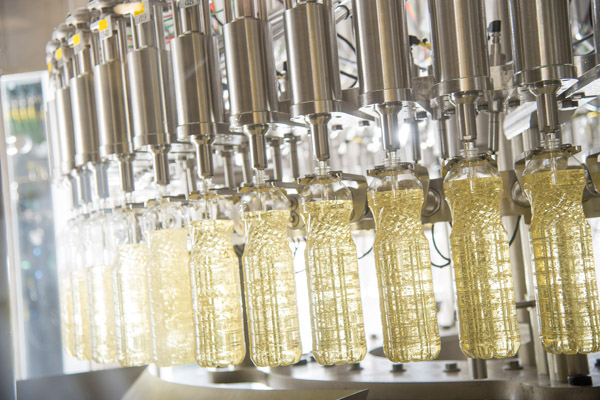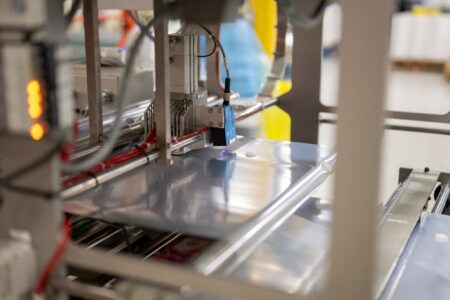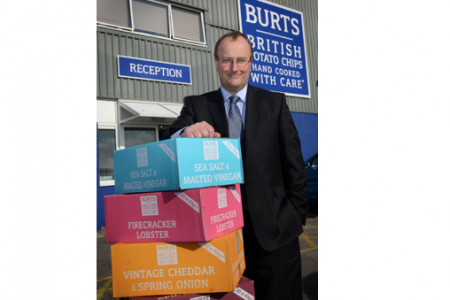High speed oil

Hungary is the world’s eighth largest producer of sunflowers and in terms of yield per hectare, it comes top. In the EU, since 2016 Hungary has ranked first, with a harvest of well above 1.8 million tons. So, for the Agrofert Group, acquiring a stake in NT was a strategic decision: in 2014, it began to build a rapeseed edible oil refinery in Lovosice, the north of the Czech Republic, next to an existing rapeseed crushing plant. Most of the oil produced there is used to make biodiesel, though part of it is also targeted to edible oil production.
In order to establish a second source of revenue in this sector, Agrofert then decided in mid 2014 to take over the Hungarian sunflower oil producer. NT was then already supplying about 20 per cent of the country’s edible oil market. Following the capacity expansion of the refinery, NT, together with Agrofert, was able to increase sales through various sales channels. Currently the company is holding market share above 50 per cent.
During this period, the company also invested at its facility in the southeast of Hungary, in both oil mill and refining technologies. This has enabled its capacity to be upsized to 250,000 tons of sunflower seeds processed per annum.
Following these investments, the filling capacity was now the bottleneck in the production operation. NT was running a total of three rather old bottling lines:
- One 12,000bph line for one-litre bottles, featuring a Krones Contiform blow moulder
- One 6,000bph line for two-litre bottles
- One line for five- and ten-litre containers.
Together, these lines handled 500,000 litres a day – not enough for NT – which is why under its new management, the company decided to double its capacity and concentrate on a single line, the filling operation for the one-litre container, for which demand is highest.
Following a transitional phase, all premium products, plus mixtures of rapeseed and sunflower oils, will also be bottled here in future.
22,000 containers per hour
Installed in its entirety by Krones, the line handles 22,000 containers per hour and comprises:
- Blow moulder/filler block, consisting of a Contifeed preform roller sorter, a Contiform 3 Pro blow moulder and a Modulfill NWJ weighing filler with 55 filling valves
- Checkmat inspector for verifying the fill level
- Modularised Prontomodul labeller with a Canmatic module for precut paper labels and a Contiroll module for wraparound labels made of oriented polypropylene (OPP)
- Checkmat inspector for verifying correct label placement
- Variopac Pro WTS for end of line packaging in trays with film or wraparound cartons
- Modulpal 2AC palletiser for stacking the packs on europallets or Düsseldorfer half-pallets.
Milan Kunciř, managing director of NT, notes several points that influenced the choice of Krones: “The crucial factors for us were these: the good performance of the Contiform technology in the existing line; Krones’ high profile, particularly in Czechia’s brewing industry; the local expertise provided by Krones’ agency in Hungary; producing and bottling 480,000 litres in round the clock operation – with all of the kit single-sourced; the quality and reliability of German engineering; and the acceptable price.”
And there was something else, too. “We wanted to offer our clients an additional advantage in terms of costs and ecological footprint by producing lighter bottles,” adds Kunciř. “By block synchronising the blow moulder and the filler, we’ve managed to downsize the weight of the one-litre container to 16.5 or 18.5 grams, depending on the brand of oil involved. What’s more, we use a short neck, which means we can also fit a lighter closure. Overall, redesigning the bottle has saved us up to 20 per cent in terms of plastic consumption.”
Kunciř has an almost personal preference for plastic labels, too. “I believe this will make it easier to recycle the entire container, since the paper labels don’t need to be disposed of separately,” he notes. The bottles are still being dressed in wraparound paper labels because “the Hungarian market, especially, is conservative in this regard,” he remarks. With the modularised labeller, however, there is an option for using OPP labels in the future, particularly for exports. “We want to have a rapid response capability for the market’s changing requirements,” Kunciř explains.
Weighing cell technology
For bottling edible oils, maximised accuracy in the filling operation is a crucial criterion for decision making. For the first time, NT is using a weighing filler instead of a volumetric model. “We believe this will give us higher filling accuracy, irrespective of the product’s filling temperature and viscosity,” says Kunciř.
The Modulfill NWJ assures these precise fill quantities specified, since its weighing cells monitor the inflowing oil during the entire filling operation. Once the desired weight has been reached, the valve closes and the product can briefly settle, then the weight is checked again. The two different filling speeds ensure perfect flow behaviour. Flow straighteners in the valve produce a filling operation with minimised foaming and turbulence.
The new line from Krones has enabled us to double our bottling capacities at a stroke – to what is now almost one million litres a day,” Kunciř concludes. “Krones was right on schedule. So far we’ve been extremely satisfied.”
Now the new high speed oil line has eliminated the bottleneck in the firm’s filling capacities, NT can tackle some new projects – the tank farm is to be upsized, the output of the oil mill increased again and the processing of the by-products upgraded. The thrust for expansion is set to continue for quite a while yet.
Parent company: Agrofert
The Czech Agrofert Group was founded in 1993 with four staff. Today, it consists of more than 250 firms, has a total workforce of around 34,000 people and is thus the largest privately owned employer in Czechia. There, and in Slovakia as well, Agrofert can justifiably claim to be the most important conglomerate in the agricultural and food sectors. The company is also investing substantial sums in Slovakia, Germany and Hungary. In 2014, it took over NT.
Subsidiary: NT
The Hungarian city of Kiskunfélegyháza is home to NT. The company buys sunflower seeds from around 1,000 farmers in the region; storage capacities for 120,000 tonnes are available for this purpose. This means that the production site is provided all year round, with NT processing the sunflower seeds to high quality, refined sunflower oil.
Products
- Kunsági Éden – the premium sunflower oil of NT. It is bottled in a one-litre PET container, with a striking closure in the Hungarian national colours, and sold through Hungary’s food and beverage retailers
- NT bottles its own secondary brands and merchandise in container sizes ranging from 0.9 to 10 litres.
Sales channels
Besides food and beverage retailers, the hotels, restaurants and catering market is the second most important sales channel, followed by industrial customers like mayonnaise producers, who receive the sunflower oil in tanker trucks. NT uses the by-products from vegetable oil processing to make animal feed, or utilises them to supply its own energy.



